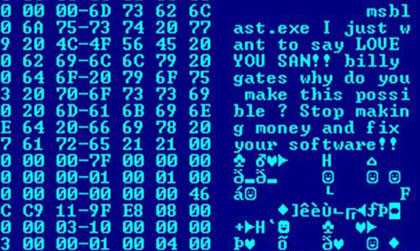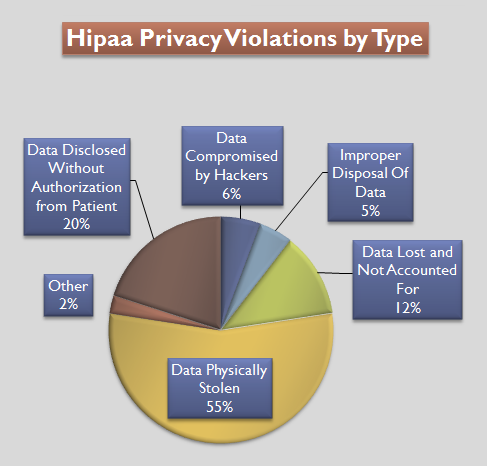|
Crimeware
Crimeware is a class of malware designed specifically to automate cybercrime. Crimeware (as distinct from spyware and adware) is designed to perpetrate identity theft through social engineering or technical stealth in order to access a computer user's financial and retail accounts for the purpose of taking funds from those accounts or completing unauthorized transactions on behalf of the cyberthief. Alternatively, crimeware may steal confidential or sensitive corporate information. Crimeware represents a growing problem in network security as many malicious code threats seek to pilfer valuable, confidential information. The term crimeware was coined by David Jevans in February 2005 in an Anti-Phishing Working Group response to the FDIC article "Putting an End to Account-Hijacking Identity Theft," which was published on December 14, 2004. Examples Criminals use a variety of techniques to steal confidential data through crimeware, including through the following methods: * ... [...More Info...] [...Related Items...] OR: [Wikipedia] [Google] [Baidu] |
Targeted Attacks
Targeted threats are a class of malware destined for one specific organization or industry. A type of crimeware, these threats are of particular concern because they are designed to capture sensitive information. Targeted attacks may include threats delivered via SMTP e-mail, port attacks, zero day attack vulnerability exploits or phishing messages. Government organisations are the most targeted sector. Financial industries are the second most targeted sector, most likely because cybercriminals desire to profit from the confidential, sensitive information the financial industry IT infrastructure houses. Similarly, online brokerage accounts have also been targeted by such attacks. Impact The impact of targeted attacks can be far-reaching. In addition to regulatory sanctions imposed by HIPAA, Sarbanes-Oxley, the Gramm-Leach-Bliley Act and other laws, they can lead to the loss of revenue, focus and corporate momentum. They not only expose sensitive customer data, but damage co ... [...More Info...] [...Related Items...] OR: [Wikipedia] [Google] [Baidu] |
Network Security
Network security consists of the policies, processes and practices adopted to prevent, detect and monitor unauthorized access, misuse, modification, or denial of a computer network and network-accessible resources. Network security involves the authorization of access to data in a network, which is controlled by the network administrator. Users choose or are assigned an ID and password or other authenticating information that allows them access to information and programs within their authority. Network security covers a variety of computer networks, both public and private, that are used in everyday jobs: conducting transactions and communications among businesses, government agencies and individuals. Networks can be private, such as within a company, and others which might be open to public access. Network security is involved in organizations, enterprises, and other types of institutions. It does as its title explains: it secures the network, as well as protecting and overse ... [...More Info...] [...Related Items...] OR: [Wikipedia] [Google] [Baidu] |
Exploit (computer Security)
An exploit (from the English verb ''to exploit'', meaning "to use something to one’s own advantage") is a piece of software, a chunk of data, or a sequence of commands that takes advantage of a bug or vulnerability to cause unintended or unanticipated behavior to occur on computer software, hardware, or something electronic (usually computerized). Such behavior frequently includes things like gaining control of a computer system, allowing privilege escalation, or a denial-of-service (DoS or related DDoS) attack. In lay terms, some exploit is akin to a 'hack'. Classification There are several methods of classifying exploits. The most common is by how the exploit communicates to the vulnerable software. A ''remote exploit'' works over a network and exploits the security vulnerability without any prior access to the vulnerable system. A ''local exploit'' requires prior access to the vulnerable system and usually increases the privileges of the person running the exploit past t ... [...More Info...] [...Related Items...] OR: [Wikipedia] [Google] [Baidu] |
Malware
Malware (a portmanteau for ''malicious software'') is any software intentionally designed to cause disruption to a computer, server, client, or computer network, leak private information, gain unauthorized access to information or systems, deprive access to information, or which unknowingly interferes with the user's computer security and privacy. By contrast, software that causes harm due to some deficiency is typically described as a software bug. Malware poses serious problems to individuals and businesses on the Internet. According to Symantec's 2018 Internet Security Threat Report (ISTR), malware variants number has increased to 669,947,865 in 2017, which is twice as many malware variants as in 2016. Cybercrime, which includes malware attacks as well as other crimes committed by computer, was predicted to cost the world economy $6 trillion USD in 2021, and is increasing at a rate of 15% per year. Many types of malware exist, including computer viruses, worms, Trojan horse ... [...More Info...] [...Related Items...] OR: [Wikipedia] [Google] [Baidu] |
Ransomware
Ransomware is a type of malware from cryptovirology that threatens to publish the victim's personal data or permanently block access to it unless a ransom is paid off. While some simple ransomware may lock the system without damaging any files, more advanced malware uses a technique called cryptoviral extortion. It encrypts the victim's files, making them inaccessible, and demands a ransom payment to decrypt them. In a properly implemented cryptoviral extortion attack, recovering the files without the decryption key is an intractable problem – and difficult to trace digital currencies such as paysafecard or Bitcoin and other cryptocurrencies are used for the ransoms, making tracing and prosecuting the perpetrators difficult. Ransomware attacks are typically carried out using a Trojan disguised as a legitimate file that the user is tricked into downloading or opening when it arrives as an email attachment. However, one high-profile example, the WannaCry worm, traveled au ... [...More Info...] [...Related Items...] OR: [Wikipedia] [Google] [Baidu] |
Malware
Malware (a portmanteau for ''malicious software'') is any software intentionally designed to cause disruption to a computer, server, client, or computer network, leak private information, gain unauthorized access to information or systems, deprive access to information, or which unknowingly interferes with the user's computer security and privacy. By contrast, software that causes harm due to some deficiency is typically described as a software bug. Malware poses serious problems to individuals and businesses on the Internet. According to Symantec's 2018 Internet Security Threat Report (ISTR), malware variants number has increased to 669,947,865 in 2017, which is twice as many malware variants as in 2016. Cybercrime, which includes malware attacks as well as other crimes committed by computer, was predicted to cost the world economy $6 trillion USD in 2021, and is increasing at a rate of 15% per year. Many types of malware exist, including computer viruses, worms, Trojan horse ... [...More Info...] [...Related Items...] OR: [Wikipedia] [Google] [Baidu] |
Payment Card Industry Data Security Standard
The Payment Card Industry Data Security Standard (PCI DSS) is an information security standard used to handle credit cards from major card brands. The standard is administered by the Payment Card Industry Security Standards Council and its use is mandated by the card brands. The standard was created to better control cardholder data and reduce credit card fraud. Validation of compliance is performed annually or quarterly, by a method suited to the volume of transactions handled: * Self-Assessment Questionnaire (SAQ) * Firm-specific Internal Security Assessor (ISA) * External Qualified Security Assessor (QSA) History Originally, the major card brands started five different security programs: * Visa's Cardholder Information Security Program * MasterCard's Site Data Protection *American Express's Data Security Operating Policy *Discover's Information Security and Compliance * JCB's Data Security Program The intentions of each were roughly similar: to create an additional level o ... [...More Info...] [...Related Items...] OR: [Wikipedia] [Google] [Baidu] |
California Senate Bill 1386 (2002)
California S.B. 1386 was a bill passed by the California legislature that amended the California law regulating the privacy of personal information: civil codes 1798.29, 1798.82 and 1798.84. This was an early example of many future U.S. and international security breach notification laws, it was introduced by California State Senator Steve Peace on February 12, 2002, and became operative July 1, 2003. Sections Enactment of a requirement for notification to any resident of California whose unencrypted personal information was, or is reasonably believed to have been, acquired by an unauthorized person. This requires an agency, person or business that conducts business in California and owns or licenses to computerized 'personal information,' to disclose any breach of security (to any resident whose unencrypted data is believed to have been disclosed). The bill mandates various mechanisms and procedures with respect to many aspects of this scenario, subject also to other defined ... [...More Info...] [...Related Items...] OR: [Wikipedia] [Google] [Baidu] |
Family Educational Rights And Privacy Act
The Family Educational Rights and Privacy Act of 1974 (FERPA or the Buckley Amendment) is a United States federal law that governs the access to educational information and records by public entities such as potential employers, publicly funded educational institutions, and foreign governments. The act is also referred to as the ''Buckley Amendment'', for one of its proponents, Senator James L. Buckley of New York. Overview FERPA gives parents access to their child's education records, an opportunity to seek to have the records amended, and some control over the disclosure of information from the records. With several exceptions, schools must have a student's consent prior to the disclosure of education records ''after that student is 18 years old''. The law applies only to educational agencies and institutions that receive funds under a program administered by the U.S. Department of Education. Other regulations under this Act, effective starting January 3, 2012, allow for gr ... [...More Info...] [...Related Items...] OR: [Wikipedia] [Google] [Baidu] |
Health Insurance Portability And Accountability Act
The Health Insurance Portability and Accountability Act of 1996 (HIPAA or the Kennedy– Kassebaum Act) is a United States Act of Congress enacted by the 104th United States Congress and signed into law by President Bill Clinton on August 21, 1996. It modernized the flow of healthcare information, stipulates how personally identifiable information maintained by the healthcare and healthcare insurance industries should be protected from fraud and theft, and addressed some limitations on healthcare insurance coverage. It generally prohibits healthcare providers and healthcare businesses, called ''covered entities'', from disclosing protected information to anyone other than a patient and the patient's authorized representatives without their consent. With limited exceptions, it does not restrict patients from receiving information about themselves. It does not prohibit patients from voluntarily sharing their health information however they choose, nor does it require confidentiali ... [...More Info...] [...Related Items...] OR: [Wikipedia] [Google] [Baidu] |

